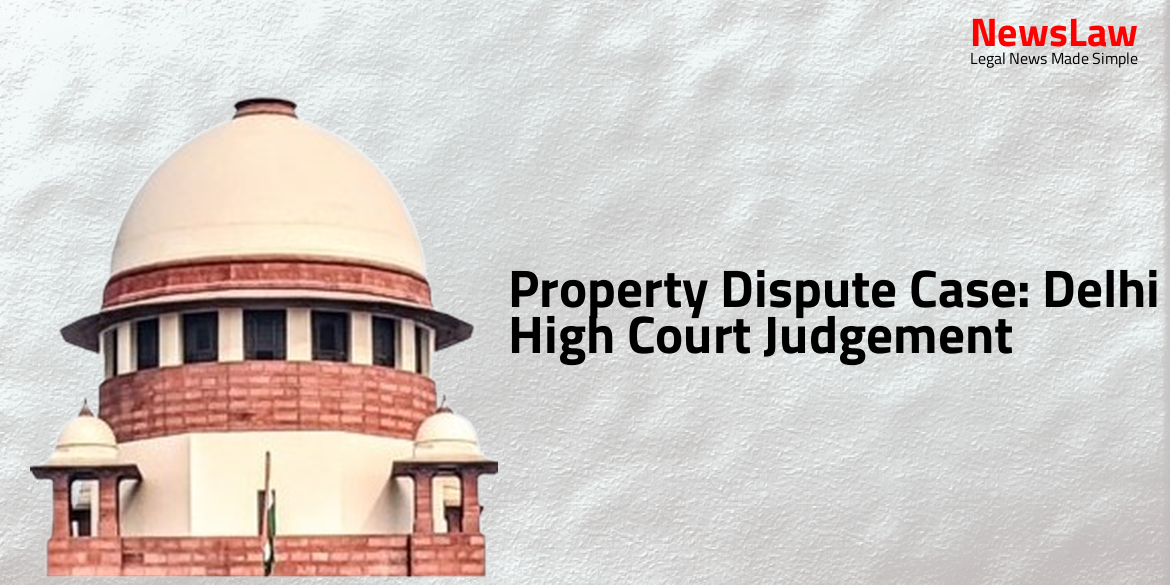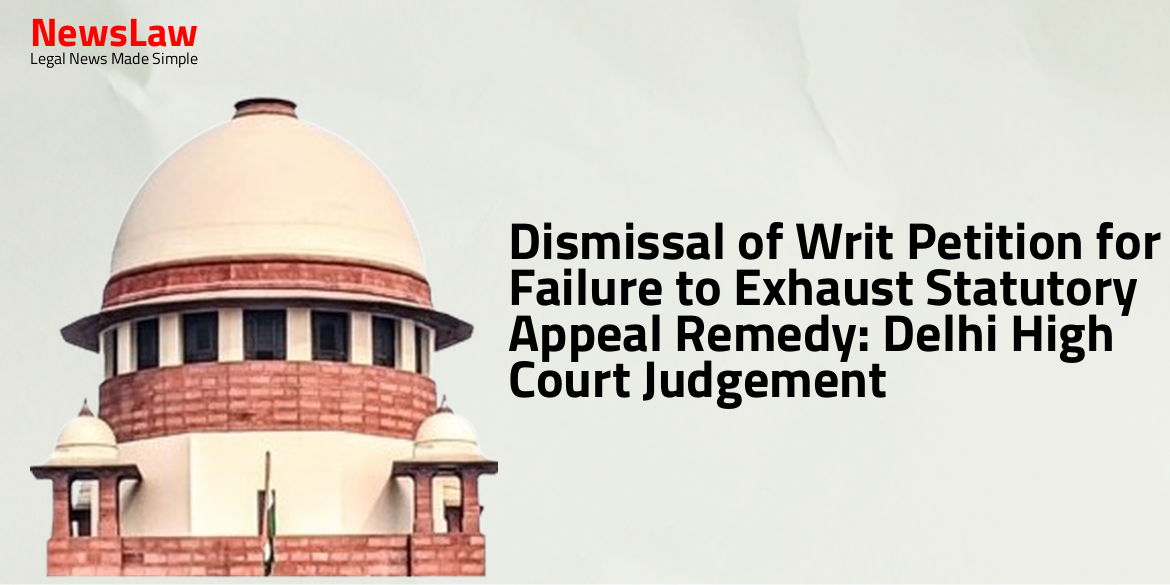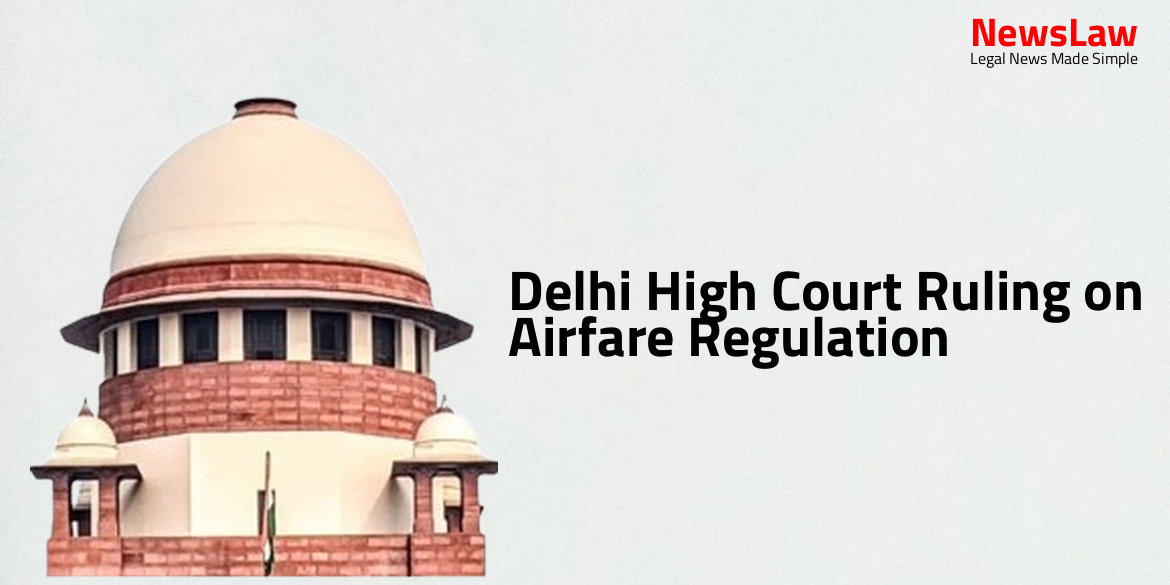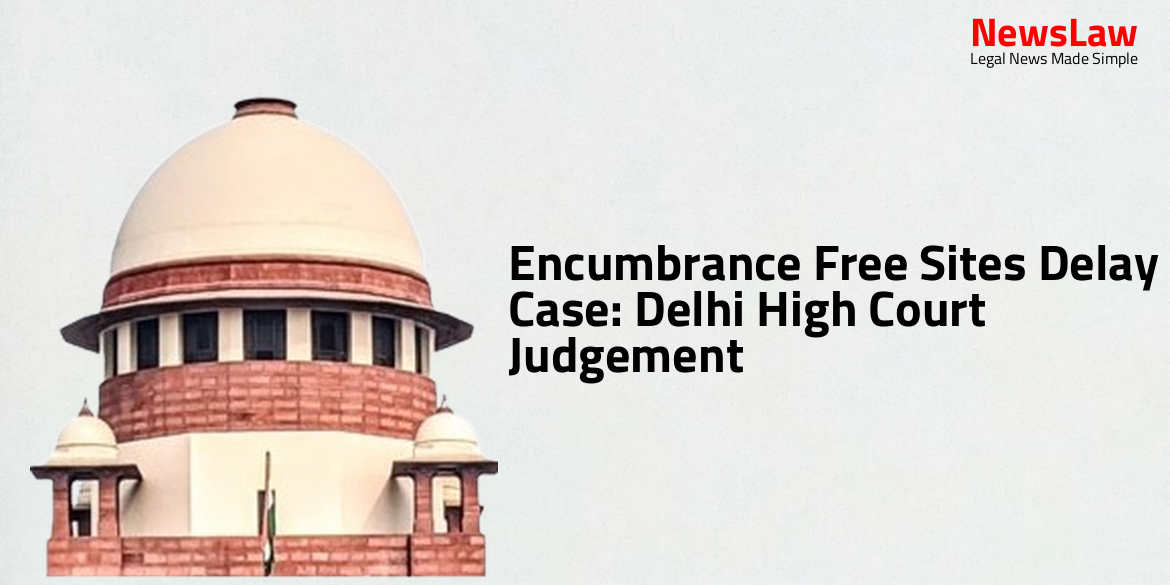In a recent legal battle at the Delhi High Court, a property dispute case was brought forward by the parties involved in the matter. The case involves a joint property purchase at WZ-1971, Rani Bagh, Delhi-110034 between the parties. The respondent alleges an oral agreement with the petitioner for possession of the property for a specified period, leading to a disagreement. Stay tuned to explore the details of this significant court ruling and its impact on the involved parties.
Facts
- The petitioners were granted 15 days to file a written statement by the learned Trial.
- Petitioner no. 2 and the respondent jointly purchased property at WZ-1971, Upper Ground Floor, Plot No 7, Rani Bagh, Delhi-110034 on 16.09.2013.
- The respondent alleges an oral agreement with petitioner no. 2 granting possession of the subject property for 8 years to petitioner no. 2 first, and then to the respondent thereafter for another 8 years.
Arguments
- Petitioner no. 1, a widow and senior citizen aged approximately 75 years, lacks a source of income and suffers from various illnesses, resulting in a delay in filing the written statement.
- The conduct of the petitioners is seen as an attempt to delay the trial as they are enjoying possession of the property being sought for partition by the respondent.
- The learned Trial Court failed to acknowledge the challenging circumstances faced by the petitioners, including the recent loss of her son and daughter-in-law, as well as health issues such as knee joint replacement surgery and illness, which led to delays in legal proceedings.
- Petitioner no. 1 resides alone with no one to take care of her, further complicating her ability to promptly address legal matters.
- The written statement was signed on 22.02.2023 due to petitioner no. 1 falling ill from 1st February, 2023 to 8th February, 2023, contributing to the delay.
Analysis
- Defendant must present a written statement of defense within thirty days from the date of service of summons.
- If the defendant fails to file the written statement within thirty days, the Court may specify another day, not later than ninety days from the date of service of summons.
- In case of further delay, the Court may allow the written statement to be filed on payment of costs, but not later than one hundred twenty days from the date of service of summons.
- If no written statement is filed within one hundred twenty days, the defendant forfeits the right to file the written statement.
- Section 5 of the Limitation Act, 1963 provides for condonation of delays if ‘sufficient cause’ is shown by the defendant for not adhering to prescribed time limits.
- The provision aims to prevent strict procedural deadlines from obstructing the administration of justice.
- Although the petitioners initially failed to file an application for condonation of delay, it was later submitted with various reasons for the delay in filing the written statement.
- The court has the discretion to extend time under exceptional circumstances, ensuring fair adjudication over strict procedural technicalities.
- A delay of 125 days occurred in this case, impacting the filing of the written statement, yet the evidence proceedings are yet to start.
- Filing a written statement is crucial for providing a structured response to the plaintiff’s claims and streamlining legal proceedings.
- The court’s power to extend time should not be limited by overly rigid interpretations, especially in cases where genuine reasons for a delay exist.
- In the case of Kailash v. Nanhku (2005) 4 SCC 480, the Supreme Court emphasized that delays in filing can be condoned beyond the 90-day period in exceptional circumstances.
- As per Section 5 of the Limitation Act, sufficient cause must be demonstrated for condoning delays, even if they exceed the prescribed period.
- In the case of Salem Advocate Bar Association v. Union of India AIR 2005 SC 3353, the Court highlighted that while adherence to timelines is important in the filing process, it should not lead to undue hardship or injustice.
- The Trial Court found the reasons presented by the petitioners for seeking delay in the case to be insufficient and lacking cogency.
- As a result, the Trial Court dismissed the application for delay and proceeded with the adjudication of the case.
- The right of the defendant to present their defense on record is crucial, leading to the framing of disputed issues based on the pleadings of the parties.
- This process allows for a focused and efficient adjudication of the case, ensuring a clear understanding of the scope of the dispute.
Decision
- Parties are allowed to place written statements on record
- Cost of Rs. 5,000/- each to be paid by petitioners to the defendant
- Both parties are to file the statements before the Trial Court
- The petition is allowed
Case Title: SAVITRI GOEL & ANR. Vs. PARVESH ARORA (2024:DHC:4252)
Case Number: CM(M)-2187/2024



